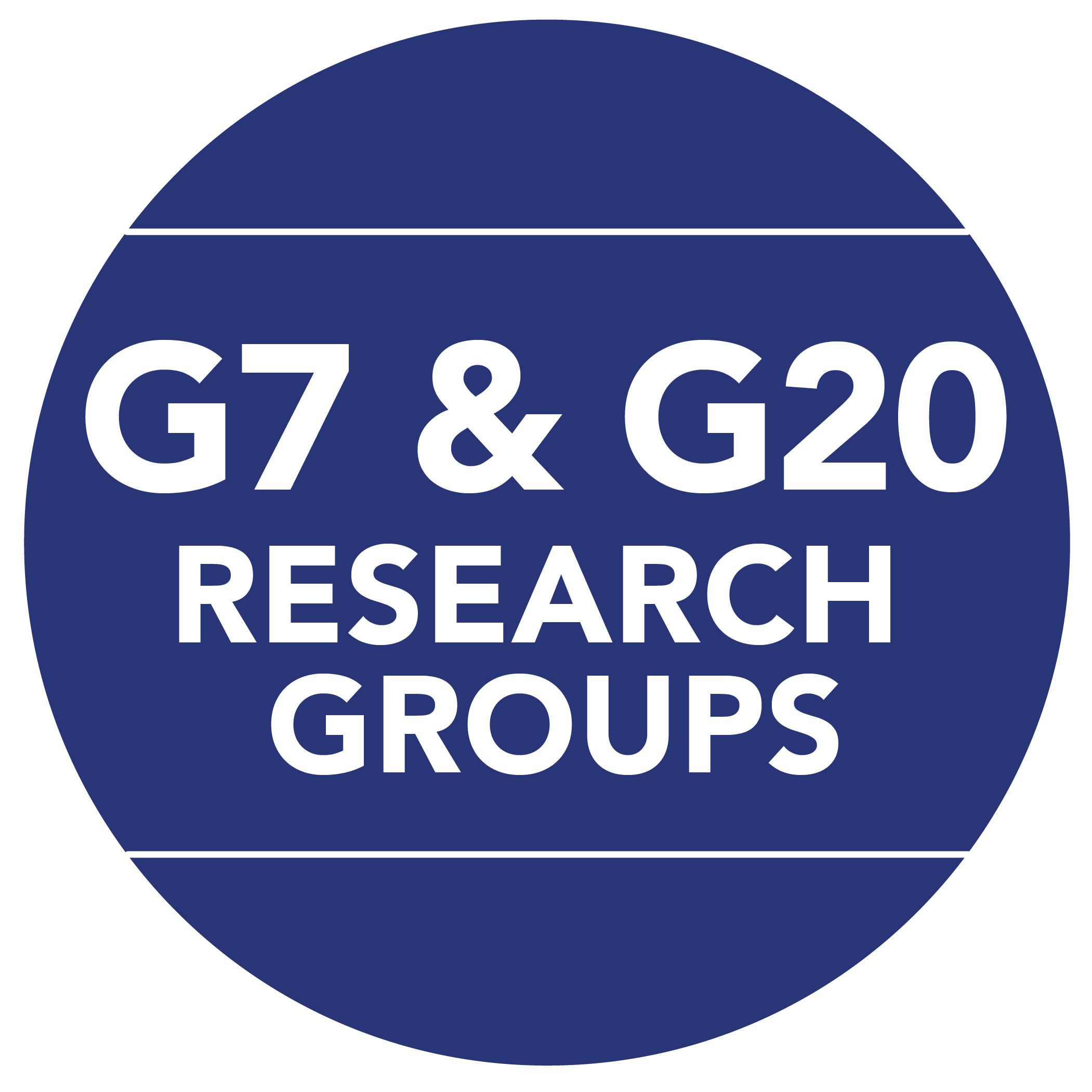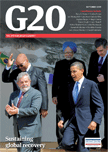

 |
 |
|

Dealing with Derivatives
By Chiara Oldani, professor of economics, University of Viterbo ‘La Tuscia’; director of research, Assonebb
To download a low-resolution pdf, click here. (Be patient! It's 7.7 MB.)
Enhanced transparency and best business practices are key to preventing another financial meltdown.
The G20’s London Summit in April 2009 dealt with explicitly strengthening the financial system by expanding the mandate of the Financial Stability Board and by underlining the need for substantial international cooperation on regulation, supervision and monitoring.
To address the financial instability experienced since 2007, the London Summit promoted the establishment of a centralised clearinghouse for over-the-counter OTC derivatives, particularly those of the credit default (CD) type. A global clearinghouse (GCH) would contribute to smoothing excessive credit risks, especially those borne by un-hedged institutions lacking adequate capitalisation and liquidity, which can represent a real danger in case of a market squeeze.
European countries have supported the proposed GCH in the de Larosière Report, issued by the European Union’s high-level working group on financial supervision in February 2009. The report asked not only for a European GCH but also for a more comprehensive risk management and warning system in a highly coordinated institutional framework. Those changes should come with the revised criteria of the Basel II Accord, which have proven to be procyclical and have forced governments to rescue banks and financial intermediaries to the detriment of taxpayers. In July 2009, the European Commission stated that in order to ensure a safe, efficient and sound derivatives market, the preferred model of a central counterparty (CCP) would be introduced in Europe by the end of 2009. This model introduces a centralised body that acts as counterpart in each transaction. Incentives to “dismantle any commercial hesitation to take up CCP clearing wherever possible” will be introduced at a European regulatory level.
The CCP constitutes a form of mutual insurance with mutual defences. Because it collects and manages collateral and serves as central guarantor, focused only on managing risks with multiple layers of protection, it simplifies the process and renders it safer. These advantages come at a cost to participants, and cannot be used for non-standardised contracts, where bilateral clearing applies.
The CCP follows the recommendations of the G8 finance ministers, plus officials from the EU and various international institutions, who met in Lecce, Italy, in June 2009. There, they discussed the need for stricter codes of conduct, paying particular attention to derivatives. Thus was born the Lecce Framework: “a set of common principles and standards governing the conduct of international business and finance”.
The Lecce Framework states that excess volatility of commodity prices endangers growth. It seeks ways to improve the functioning and transparency of global commodity markets, including commodity derivative markets (see Table 1 in the pdf or printed edition). The special attention paid to commodity derivatives is justified by their growth and speed, and by the macroeconomic implications caused by their mispricing and misuse.
Commodity derivatives reached a gross market value of $956 billion as of December 2008, of which $65 billion are gold and $18 billion other precious metals (see Table 2 in the pdf or printed edition). If the notional amount of commodity contracts (which is never exchanged between parties) is added, the figure reaches $8 trillion. In relative terms, the commodity market represents less than 1 per cent of the global OTC derivatives market in the outstanding notional amount, and less than 3 per cent if based on gross market value.
Since June 2008 there has been a substantial drop of two thirds due to reduced appetite for risk in financial markets. Commodity prices, including precious metals, have also dropped severely. There are insufficient data available on commodity derivatives with respect to the trading of energy contracts (such as oil and electricity). However, the spikes in oil and natural gas prices experienced in 2007 and the soaring demand for energy by emerging countries – which will surpass that of the members of the Organisation for Economic Co-operation and Development in the coming five years – increase the need for hedging by market players. Energy derivatives contracts, as a special type of commodity, need better disclosure of data with respect to prices, underlying assets and counterparties involved at any stage.
The G20 should explicitly address this weakness in the global financial reporting system, because the wealth effect of energy consumption can have a significant impact on recovery, and because of the indirect effects from energy to production and then development. Moreover, the recent liquidity injection in the global economy raises inflationary concerns: such liquidity likely flows in OTC markets, and the resulting propagation of inflation should not go through unregulated financial tools, since standard inflation-fighting measures adopted by central banks and governments can be ineffective.
The Pittsburg Summit should make only well-capitalised intermediaries able to purchase commodity, energy and all non-financial underlying assets contracts. The massive injection of liquidity by the European Central Bank, the US Federal Reserve and the Bank of England since 2008 will trigger inflation in the following years. Those unable to hedge, notably households, need protection ex ante. Inflation represents the next challenge for the G20 policy makers after 2010.
The best cure for the global financial crisis and reducing the likelihood of a new one is the effective limitations of the shadow banking system. It has been at the root of the financial meltdown because of its excessive counterparty risks and unbalanced portfolios. Financial deregulation has proved unable to balance risks. The decision by US president Barack Obama that hedge and all private funds should be registered with the Securities and Exchange Commission moves toward enhanced transparency and best business practices, which can restore confidence and promote growth in the very short run.
|
This Information System is provided by the University of Toronto Library |
All contents copyright © 2024. University of Toronto unless otherwise stated. All rights reserved.